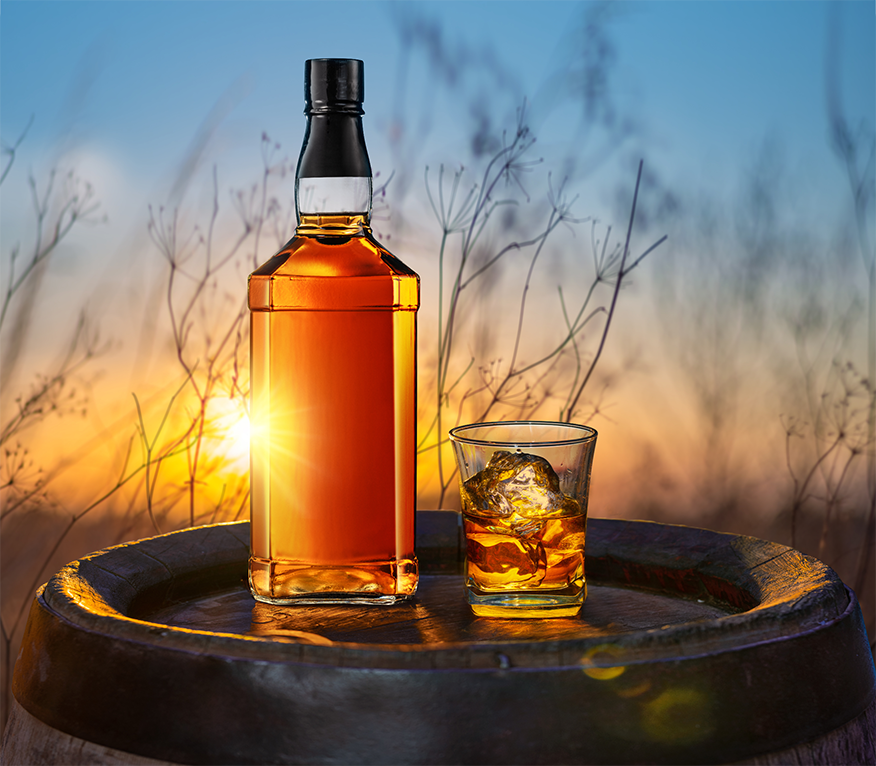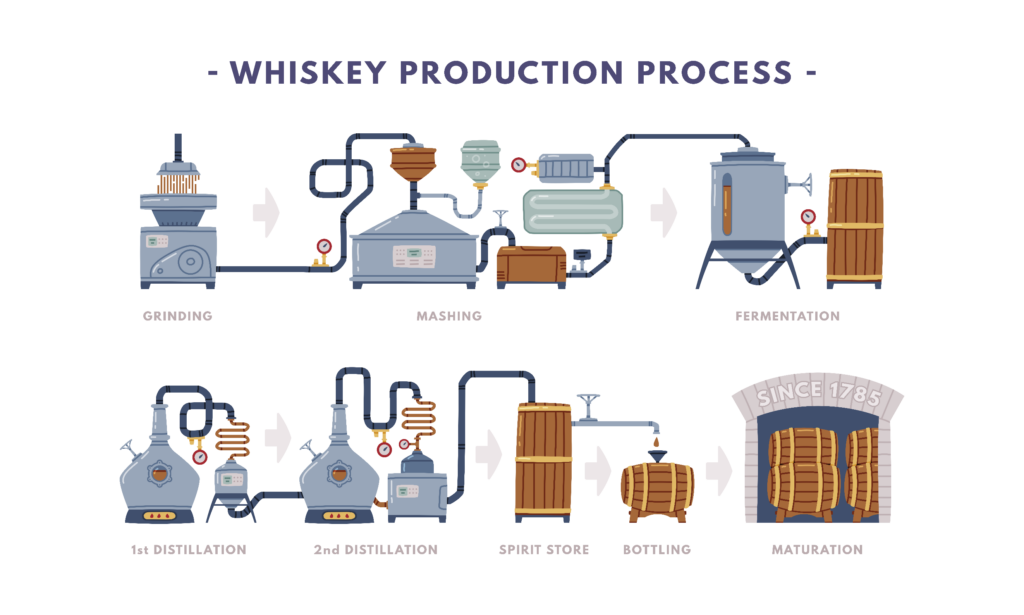SUMMARY: Why is the consumption of bourbon considered a vice rather than a virtue? An obvious reason is abuse, however the less obvious one, ignorance, is much more intriguing. This blog sets out to remedy that! Bourbon perfectly illustrates ideal sustenance, brimming with life-enhancing congeners and promoting good digestive health. This blog discusses how its made and why this uniquely American spirit is invaluable in our pursuit of well-being.
AUTHOR: Kevin S. Millet, D.C., director of Total Body Modification

[This information is for readers who are of legal age to consume alcoholic beverages (21 in the USA and 18 most other places). If that is not you please visit our other blogs. Thank you.]
“… ont pû tromper quelques hommes, ou les tromper tous dans certains lieux & en certains tems, mais non pas tous les hommes, dans tous les lieux & dans tous les siécles.”
Traité de la Vérité de la Religion Chrétienne (1684) Jacques Abbadie, Page 11
The excerpt above penned by Jaques Abbadie is the perfect introduction to what my blog below about bourbon is illustrative of. While a near literal translation of the prose is “One can fool some men, or fool all men in some places and times, but one cannot fool all men in all places and ages,” it is most often repeated in English as: “You can fool all the people part of the time, or you can fool some people all the time, but you cannot fool all people all the time.” This quote has been loosely attributed to Abraham Lincoln.1
The Question of Universal Adoption
It illustrates something that I have used as a guide in making lifestyle and dietary choices. Whenever something originates from one part of the world and becomes adopted throughout the whole world, take notice. Regardless of how it may appear at first blush, I ask myself the following questions: “Why has ____________ been universally adopted? What survival value does it confer? Is there a particular way that it must be prepared and/or consumed to confer said benefit?”
What I have found, again-and-again, is that universal adoption guarantees a strong benefit and, as best as I can, I come to understand it and adopt it myself. Some examples that have caught my attention are bananas, rice, noodles, bread, hot peppers, tomatoes, chocolate, coca cola, coffee, wine, tobacco, beer, and whiskey, including bourbon. While I could write a blog on each of these illustrating the benefits and the how—except tobacco, that one still mostly alludes me—I’ve chosen to write about bourbon first. Let’s proceed.
A Bourbon Anecdote
A TBM Practitioner, priest, and plumber walk into a bar…just kidding.
A handful of years ago, at a bourbon tasting in Kentucky, I got a tour the distillation facility and rick house. Once our group got to the point in the tour where we got to actually taste the goods, our guide pulled out bottles and glasses and exclaimed, “Now, for the reason we drink bourbon—the alcohol!” I couldn’t but blurt out, “We don’t drink bourbon for the alcohol, we drink bourbon for the wood! We have the alcohol after the distillation. Its then aged in barrels to extract the properties of the wood. If you just want alcohol—drink vodka!”
It was said in good spirits (you know that’s punny).
In Defense of Alcoholic Beverages
Let’s start out by hitting alcohol abuse head on. I assert that “food abuse,” in the form of overeating alone (not to mention bulemia and anorexia), does exponentially more societal, economic, environmental, and medical harm than any alcoholic beverage ever dreamed of. Yet there are no widespread cries to prohibit food altogether nor is food generally looked at as a vice. I’m reminded of something I learned early in life, “Don’t define a rule by the exception.” Yes, there are those who abuse bourbon and the affects are heartrending and chilling.
Yet, the overwhelming consumption of bourbon is not abusive and its judicial use confers countless survival values [SURVIVAL VALUE: utility (as of one or more characters or qualities of an organism in the struggle for existence (https://www.merriam-webster.com/dictionary/survival%20value accessed 19 January 2023)]. Therefore, understanding why it how value and how to extract that value are something I consider two worthwhile objectives.
What is Bourbon?
All alcoholic beverages are not created equal. There is a time and place for nearly all of them however there has been a recent proliferation of commercially-driven beer, wine, and spirits for which there is no place in a healthy lifestyle. That topic may be taken up at a later date. That being said there are three alcoholic beverages that, for me, stand above the rest in offering survival value. They are barrel-aged, skin-contact macerated wines, herbaceous spirits (aperitifs and digestifs), and barrel-aged spirits. Bourbon falls into the latter category and, in my opinion, towers above the rest within that group.
Why you ask? One simple answer—oak! Allow me to digress for a moment. I like to prepare things in the kitchen and when I bake or make ice cream I draw from my vast collection of flavorful extracts. They include vanilla, almond, lemon, cinnamon, and many more. Nearly all of them are alcohol-based. Why is that? Its because most flavor compounds (aka congeners) are only soluble in alcohol and alcohol is an excellent preserver of them maintaining their original components even after years on the shelf. Which brings me to back to wood and bourbon. What is bourbon? It is virtually nothing more nor less than oak extract.
More About Congeners?
Congener means “born together” in Latin. Congeners are organic molecules produced during the fermentation and aging process. Common congeners found in bourbon include: tannins, esters, acetone, phenols (e.g. ellagic acid), furfural, aldehydes, fuselol, and sugars. Not all of them are beneficial.
In order to metabolize and eliminate the ones that aren’t, adequate hydration is crucial. Otherwise, a hangover may ensue. Essentially, a hangover following consuming an alcoholic beverage is a symptom of inadequate hydration. Because vodka has a very low amount of congeners, it is less-likely to trigger a hangover. However, you also miss out on the beneficial congeners. Congeners are the whole reason distillers take, what is essentially, vodka and place it in an expensive barrel. This process can be dangerous. They store the oak barrel for several years sometimes decades. There must be benefit to offset the risks. Let’s look more at the process.

Basics of Bourbon Production
First off, bourbon is a type of whiskey. Just like there are different types of wine (red, orange, sparkling, port), there are also different types of whiskey (e.g. bourbon, rye, scotch, single malt). For a whiskey to legally be labeled as a bourbon, a spirit must be made in the USA from a mashbill. This is a porridge that is fermented to produce the alcohol, called “beer” by distillers, which is then twice or more distilled. The mashbill must be at least 51% corn and initially aged for some amount of time in a new American oak barrel. Used barrels cannot be used to age bourbon, only to “finish” them once they have been aged in virgin oak. FUN FACT: Moonshine is essentially bourbon without the barrel. While anything can be used to make the mash, as moonshine is unregulated (generally done illegally), corn is the most common. Instead of being distilled at least twice to remove unwanted congeners. Moonshiners also typically avoid discarding the low-quality first and last part of the distillate (what bourbon distillers call the “heads and tails”) they simply throw it all in. Hence moonshine has a reputation for low-quality and is prone to cause hangovers.
The Barrel is a Big Deal
The barrel is nearly always charred by the cooperage from whence it is purchased. They char to the distilleries specifications. Charring occurs by literally setting the inside of the barrel on fire. Its quite a spectacle, I highly recommend touring Independent Stave’s Kentucky Cooperage in Lebanon, Kentucky.
After the barrel is charred, left behind is a charcoal layer that is ¼ – ⅜ of inch thick on the entire inside surface of the barrel—essential charcoal. This both acts to increase the surface area by which the “white whiskey” (very high-proof vodka) will contact the oak and provide charcoal filtration (think activated charcoal and its use to remove toxins from the digestive tract and therefore entire body) of the non-beneficial congeners. Interesting fact: oak is the only wood that you can make barrels from that won’t leak.
The temperature fluctuations which occur with the setting and rising of the sun (“rick houses,” the building where barrels are stored during aging, are not temperature controlled) act as a beating heart circulating the white whisky, also known as “high wine” to distillers, into and back out of the wood. After a period of months, years, or decades the spirit is saturated with oaks rich library of congeners.
Benefits of Moderate Bourbon Consumption
Again I want to highlight that a lot of trouble, expense, and risk is undertaken to take white whiskey and turn it into brown whiskey. Our forefathers have not been doing this for centuries because they had nothing better to do, quite the contrary. I submit to you that it was recognized early on that life was both better and longer when a person has brown whiskey available to them and were able to afford it.
COOL FACT: Bourbon is nearly always additive-free, particularly if it is labeled “straight” bourbon. Something that is rare in other whiskeys.
There are three main benefits to moderate bourbon consumption which I want to highlight. While many of these apply to other alcoholic beverages, I again assert that bourbon, red and orange wine, and herbaceous spirits rise above the rest. In a later blog, I will address the latter two and their unique properties and benefits. The three main benefits are
- social
- physical – general
- digestive
When it comes to social, it is well known that overwhelmingly people prefer to drink in groups and find it easier to form closer bonds with those whom they imbibe with. Dare I mention the other well-known social effects of feeling more romantic and inclined to engage in activities which start or grow families? Again, I know there are many social ills associated with abuse but remember we’re not defining the rule by the exception here.
Health Benefits
The general health benefits are multitudinous and include:
- the maintenance of cognitive function, the ability to think and remember, throughout life and into the sunset years.
- lower body-mass index (BMI)—being slimmer and trimmer!
- better cardiovascular performance, both immediate by increasing heart power (I thinking of warriors taking a drink before entering into battle) and long-term by decreasing the risk of heart disease
- reduction of oxidative free radicals in the body thereby decreasing cancer risk
- Protect against developing diabetes
Allow me now to say a little about the digestive benefits of bourbon. first off, bourbon causes a person to relax and withdraw their mind from the days worries. This allows for the up-regulation of the vagus nerve which in necessary for digestion. Now bourbon can serve both as an aperitif, consumed at the beginning of a meal to activate digestion, and as a digestif at the conclusion of a meal to promote more complete digestion. Bourbon, like all alcoholic beverages, is orexic, meaning it stimulates appetite. Additionally the congeners in bourbon will activate salivation. Additional digestive benefits include:
- up-regulates vagal activity (which account for most benefits below)
- delays gastric emptying (food remaining in the stomach longer which enhances protein and mineral digestion along with vitamin B12 but also eradicates more of the microorganisms which are present in all foodstuffs)
- slows bowel transit time (this means more exposure of the meal to the enzymes and other catalysts released by the gall bladder and pancreas leading to food being more completely digested)
Want to Know More?
To deepen your understanding of this topic, conduct a web or similar search for the following terms and/or topics: congeners, the benefits of congeners, ellagic acid, ethanol and gastic emptying, benefits of digestifs and apperitifs. I also invite you to peruse the following:
*https://onlinelibrary.wiley.com/doi/pdf/10.1002/jib.496
https://www.webmd.com/diet/whiskey-good-for-you
https://en.wikipedia.org/wiki/Bourbon_whiskey
https://www.thelist.com/181420/unexpected-ways-you-can-use-whiskey-to-help-your-skin-and-hair/
- https://quoteinvestigator.com/2013/12/11/cannot-fool/ Accessed 19 January 2023.
